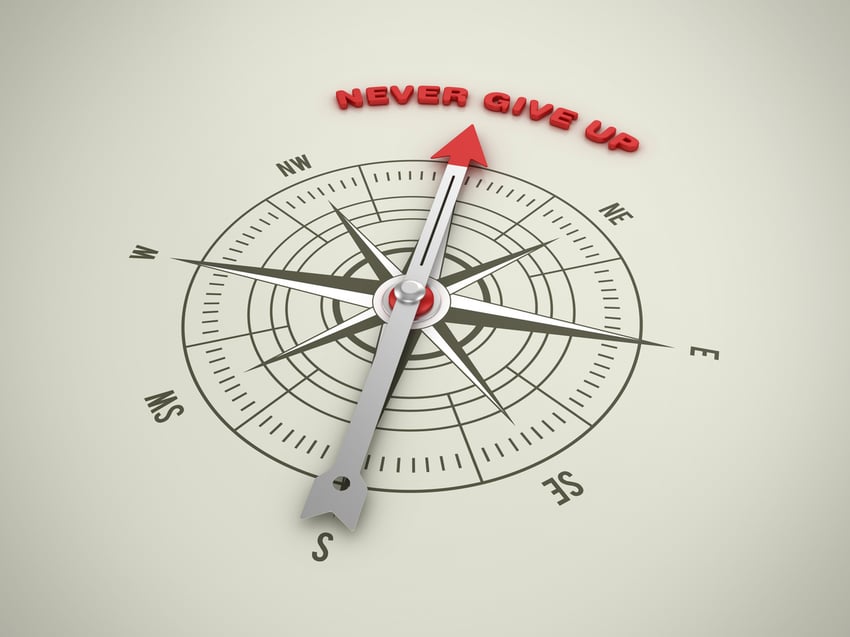Most founders and CEOs do not start companies dreaming of micromanaging grown adults.
But when accountability breaks down, that is exactly what happens.
Instead of leading, you are chasing updates, cleaning up avoidable messes, and redoing work that should have been done right the first time.
This is not just a performance failure.
It is a cultural failure.
And all culture failures start at the top.
What you do—and what you tolerate—sets the standard for your entire organization.
You teach your team what is acceptable by what you allow to persist.
All problems walk on two feet. The wrong people in the wrong roles will suffocate progress—no matter how strong your vision or strategy is.
If you do not enforce a system of clarity, consistency, and ownership, then prepare to manage drama and friction indefinitely.
Scaling requires more than ambition. It requires:
- Disciplined People
- Disciplined Thought
- Disciplined Action
Thank you, Jim Collins... If you are too busy to build such a system that reinforces clarity, consistency, and ownership at every level of your business, then brace for unnecessary friction and drama.

Why Accountability Fails: The Three Gaps (Gapology)
“You cannot build excellence on a foundation of ambiguity and excuses.” - Chris Young
According to Gapology (by Mark Thienes (Author), Brian Brockhoff (Author)), accountability often fails because of three fundamental gaps:
1. The Knowledge Gap
People do not know what is expected. Objectives are unclear, the targets are fuzzy, the KPIs are missing, and the priorities change weekly.
2. The Importance Gap
They know what to do, but they do not care enough. There is no emotional connection to the mission. No fire. No fight.
3. The Action Gap
They know what to do and why—but still do nothing. Fear, confusion, or apathy stop them cold. No ownership. No results.
Your job as a leader is to ELIMINATE all three.
And that is where the Accountability Flywheel comes in.
The Accountability Flywheel
This is not theory. It is a system that, when FULLY-installed and reinforced, creates a high-trust, high-velocity culture where:
-
Ownership is non-negotiable.
-
Feedback is real-time.
-
Execution is expected.
Here are the five flywheel spokes that drive performance at scale:
1. Disciplined People — One Name. One Outcome.
Execution requires a name—not a committee. Shared ownership is code for no ownership. Clarity creates speed. Ambiguity breeds chaos.
Action: Use the Function Accountability Chart (FACe) from the Rockefeller Habits. Assign one name to every key process, number, and KPI. No overlap. No confusion. No “shared” nonsense.
2. Disciplined Thought — Checklists Prevent Excuses
Airlines do not trust memory. They use checklists—every single flight. Not because they are forgetful, but because the cost of failure is too high.
So is yours.
Action: Build execution checklists for everything that matters—weekly meetings, onboarding, hiring, customer feedback loops. Use them like your business depends on them. Because it does.
Bonus: Run the Rockefeller Habits Checklist quarterly. It is your company’s preflight process. Skip it and expect turbulence.
3. Disciplined Action — Feedback Delayed is Accountability Denied
When there is a lag in feedback, ownership dies. And your culture dies with it.
Action: Implement weekly 1:1s, daily stand-ups, and visible scoreboards that track execution in real time. Use green/yellow/red indicators so no one hides. Problems should surface fast and get solved faster.
4. Top 20 Percentile Talent — No Compromise. No Passengers.
The top 20% of talent drives 80% of your results. These are not just “A-Players”—these are Rainmakers and Wolves. They either make you money or solve hard problems.
Everyone else is noise.
Action: Build a system to relentlessly hire, coach, and retain the top 20 percentile for every role. Benchmark the role. Define Key Accountabilities. Use values-based hiring. Create structured onboarding.
Coach them hard. Cull them fast if they are not aligned.
Truth: Anything less invites mediocrity. And mediocrity multiplies.

5. Team Trust — Peer Accountability is the Ultimate Standard
You cannot have accountability without trust. And you cannot have trust without commitment.
Teams that trust each other do not wait for the boss to enforce standards. They hold each other to them.
Action: Make performance visible—publicly. Build transparency through real-time dashboards and meeting rhythms. Reinforce a culture where team members ask, “What can I do to help?”—because they care, not because they were told to.
The Outcome: A Culture That Manages Itself
This is what happens when the Flywheel turns:
-
People know the score.
-
They know what to do—and why it matters.
-
They take ownership. Every time.
You stop managing people. You manage the system. And the system manages the culture.
Are You Ready to Scale with Intention?
Most Founder/CEOs start with a vision. Few align the right people, processes, and priorities to achieve it. At The Rainmaker Group, we help growth-minded leaders build high-performance teams, instill radical accountability, and scale with precision.
If you are serious about unlocking your company’s potential—
Start by unlocking your own.
Must-Reads for the Growth-Minded Founder/CEO:
-
The Mental Models Every Founder/CEO Must Master to Scale with Discipline
-
Founder Mode: The Entrepreneurial Mindset That Separates Visionaries from Mediocrity
-
You Are the Bottleneck: Why Critical Self-Awareness Is the CEO’s Most Underrated Performance Tool
👉 Schedule a Strategy Conversation
👉 Explore More Leadership and Hiring Insights on the Blog
👉 Follow Chris on LinkedIn for more frameworks and thought leadership
You do not need to figure it out alone.
But you do need to take the first step.
Build the Flywheel. Or keep babysitting. Your choice.
Chris Young is a Trusted Advisor To Founders / CEOs | Certified Scaling Up Coach | Builder of People, Leaders, Teams & Economic Moats | Strategist and proud founder of The Rainmaker Group.




